BLOG: The Shard Protest – Are environmentalists trampling indigenous views on Arctic development?
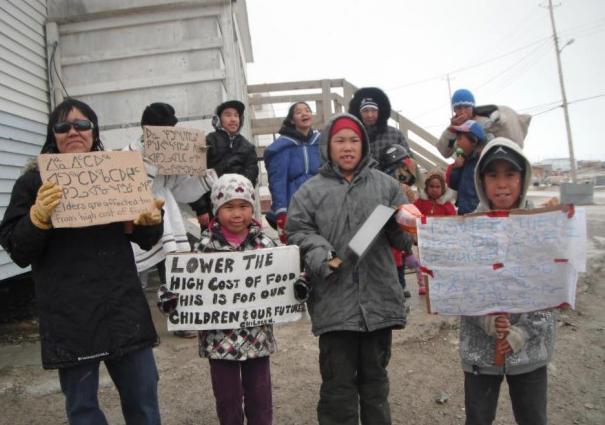
Just last year, protestors in Nunavut spoke out against the high cost of milk and other basic foodstuffs. But few international media outlets paid attention to these protests, even though they touched upon an issue just as central to the Arctic as the environment: human development and well-being.
In comparison, the scaling of The Shard, a London skyscraper that’s near BP’s offices, by six Greenpeace protestors attracted international attention to the environmental issues surrounding drilling for oil and gas in the Arctic. The contrasting media responses to these two protests highlight the unyielding primacy of the environment in international debates on the future of the Arctic. When I tell people that I study the Arctic, one of the main questions I receive is, “Do people live up there?” Depictions of the circumpolar north as pure and empty are still resonant. The answer to that question is yes. Four million people do.
Environmental debates
Many people get upset that multinational corporations such as Shell and ExxonMobil are involved in the Arctic, or equally the Amazon or Africa. Yet do global non-profit organizations like Greenpeace have any more legitimacy when they insert themselves into “local” environmental debates? One could argue that Arctic drilling is not a local issue anymore, as it is joined up with international commodity chains and the global issue of climate change. But even if that much is true, the extraction of oil and gas will always affect local residents and their environment. It might be harder to realize this in the sparsely populated stretches of the Arctic, where there are much fewer people than in, say, the Nigerian Delta or the Gulf of Mexico. It might also be difficult to conceive of the local side of oil and gas debates in the Arctic because the indigenous peoples who live near resources in question are often marginalized, especially in countries such as Russia, but also even in places like Norway.
The media’s binary depiction of Arctic drilling – as if it is either a question of drill or not to drill depending solely on environmental considerations – is problematic. The sanctity of the environment should without a doubt figure high on the agenda. But the interests of the Arctic’s residents – many of whom support oil and gas drilling, as it is one of the few ways for them to achieve economic growth – should also account for something. Greenpeace cannot unilaterally declare that the Arctic is a pristine and sacred last refuge. To do so overlooks the difficult economic realities of life in the Arctic.
Is environmentalism trampling out local views on development?
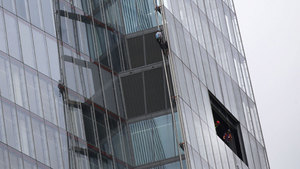
Unlike oil companies, environmentalist non-profit organizations are rarely branded as villains. Their cause – to safeguard the environment for future generations – is a noble one. Thus, it’s easy for the environment to actually often monopolize discussions about how to use and safeguard certain regions at the expense of the people who inhabit them. Therefore, it is important to scrutinize their perspectives and ensure that international discourses of environmentalism are not trampling out local views on development.
For an outside observer like myself, I’ll admit that it is heart-wrenching seeing countries like Tanzania seek to build roads across areas important for the annual migration of animals across the savanna, or to see Greenland look for partners to build mines in the Arctic. These are areas that we often see on television as beautiful, untouched wildernesses where lion cubs roughhouse and humpback whales leap out of the water in slow motion. Indeed, one of the so-called “Ice climbers,” Victoria, wrote on Greenpeace’s blog, “When I was a kid, I loved National Geographic documentaries. Described generously as ‘sensitive’, I was known to cry every time the lions would eat the gazelles. I’ve never stopped devouring nature documentaries and all things Attenborough, and although I’ve learned a bit more about the circle of life as it pertains to lions and gazelles, I’m still often moved to tears when I see human and animal suffering and the destruction of natural environments.”
Keeping locals at the forefront of debate
While armchair safaris engage people in the natural world of places like the Arctic, the less television-friendly human poverty just outside the frame often goes unrecognized. If development such as ecotourism or arts and crafts could solve every economic problem in resource frontiers, that would be wonderful. But for the time being, it cannot. This is not to say that hydrocarbon development in the Arctic should or should not go forward, but rather that the needs and wishes of local residents must be kept at the forefront of the debate.
It is astounding that six individuals – only two of whom are from Arctic states – could shift the debate on an area inhabited by four million people, who are often voiceless in media reports. Scanning through stories by the BBC and NBC News, reporters did not seek any comment from Arctic residents, indigenous or otherwise, on their feelings about the Greenpeace protest. If they did, the debate on the future of the Arctic would be more balanced and inclusive. Polar bears need icebergs and beluga whales need oceans free of sonar waves, to be sure. But people also need affordable food and warm homes – topics less news-friendly, but just as critical, to the future of the Arctic. As appealing as it might be for those of us, including myself, who don’t live in the Arctic to want to set up fences and simply declare a swath of land and sea protected for eternity. Yet when discussing the Arctic, we should strive to consider not only its environment, but also its people, who are more than an afterthought.


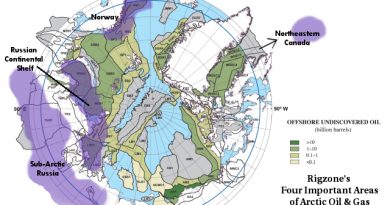
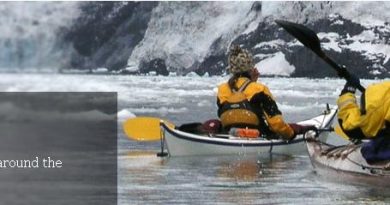
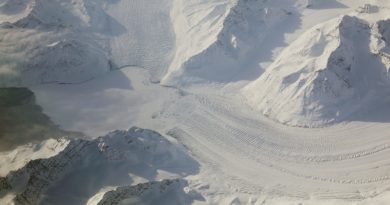
I work on the Greenpeace Arctic campaign, and I’d like to respond to a couple of points in this thoughtful piece. We certainly agree that climate change affects us all and thus what happens in the Arctic matters to everyone. As you point out, that is why we’re attempting to bring this issue to an international audience.
However, I wanted to respond to the suggestion that our campaign somehow exists apart from the millions of people who live in the Arctic region. Greenpeace works with Indigenous communities across the Arctic and beyond, and unequivocally supports the rights of Indigenous Peoples and others who live in the Arctic to self-determination. We are pushing the Arctic Council to give Arctic Indigenous groups full voting rights, and believe this should be at the heart of future policy making in the region.
Representatives from Indigenous communities work at the core of our campaign in Russia, the US and Canada, and two young Indigenous women recently took part in an expedition to the North Pole which we helped organise. This was another type of ‘action’, which sits alongside the climbing of the Shard in London to which you refer. You can read more about this journey at greenpeace.org/northpole.
We have hosted two international Indigenous conferences – one in Russia and another Kiruna, Sweden, on the eve of this year’s Arctic Council meeting. These resulted in a declaration drafted by the Indigenous participants, and since then, more than 40 individuals and groups from every Arctic state have become signatories, calling for Indigenous solidarity and Arctic protection. (peoplesarctic.org)
Of course, we understand that not everyone agrees that oil drilling in the offshore Arctic represents an unacceptable risk to the local environment and global climate, and we respect a diversity of voices in this debate. Our six climbers have undoubtedly helped to bring this issue to a broader audience, raising awareness of the plight of the Arctic, its Peoples, culture, wildlife and environment. A broad discussion of these issues is surely beneficial, and our campaign will continue to work with Indigenous Peoples across the Arctic to ensure they play a central role in deciding the future of this fragile region they call home, and on the issues that impact both northern communities and people around the world.
Dear Ms. Bennett,
Thank you for a very thoughtful article. Your point of view is entirely pertinent but not necessarily mutually exclusive of the Greenpeace activists’ message while scaling the London Shard.
For a campaign to be effective its message has to be as simple as it is spectacular. This was an awareness raising of the dangers of plundering the Artic, which I hope, we can all agree on.
With people’s interest and awareness raised it then indeed important to go into more detail and provide more focused information. But to crowd the initial message is confusing. There are many issues accompanying the plight of the peoples of the Arctic and nutrition is but one of them. All cannot be addressed from the top of the Shard. I may also hazard a guess that the gutting food prices currently prevalent in the Canadian North are, sadly, considered a domestic Aboriginal issue in which the international media is as completely uninterested as, alas, the Canadian media (and government).
Arctic peoples’ natural interest in drilling and drawing economic benefits from their oil are perfectly legitimate but are not within Greenpeace’s purely environmental mandate. It is not all bad either that Arctic peoples become aware of the devastation Shell, Exxon, etc have wrought in the Niger Delta, the devastation not only of the environment but the peoples and the cultures living there. It is a legitimate fair-warning that should be taken very seriously indeed by any nation thinking of allowing these dangerous corporations on their land. The consequences are appalling.
Thanks again for bring a different perspective to our precious, delicate Arctic.
Pingback: 4 Million Against Six and still losing